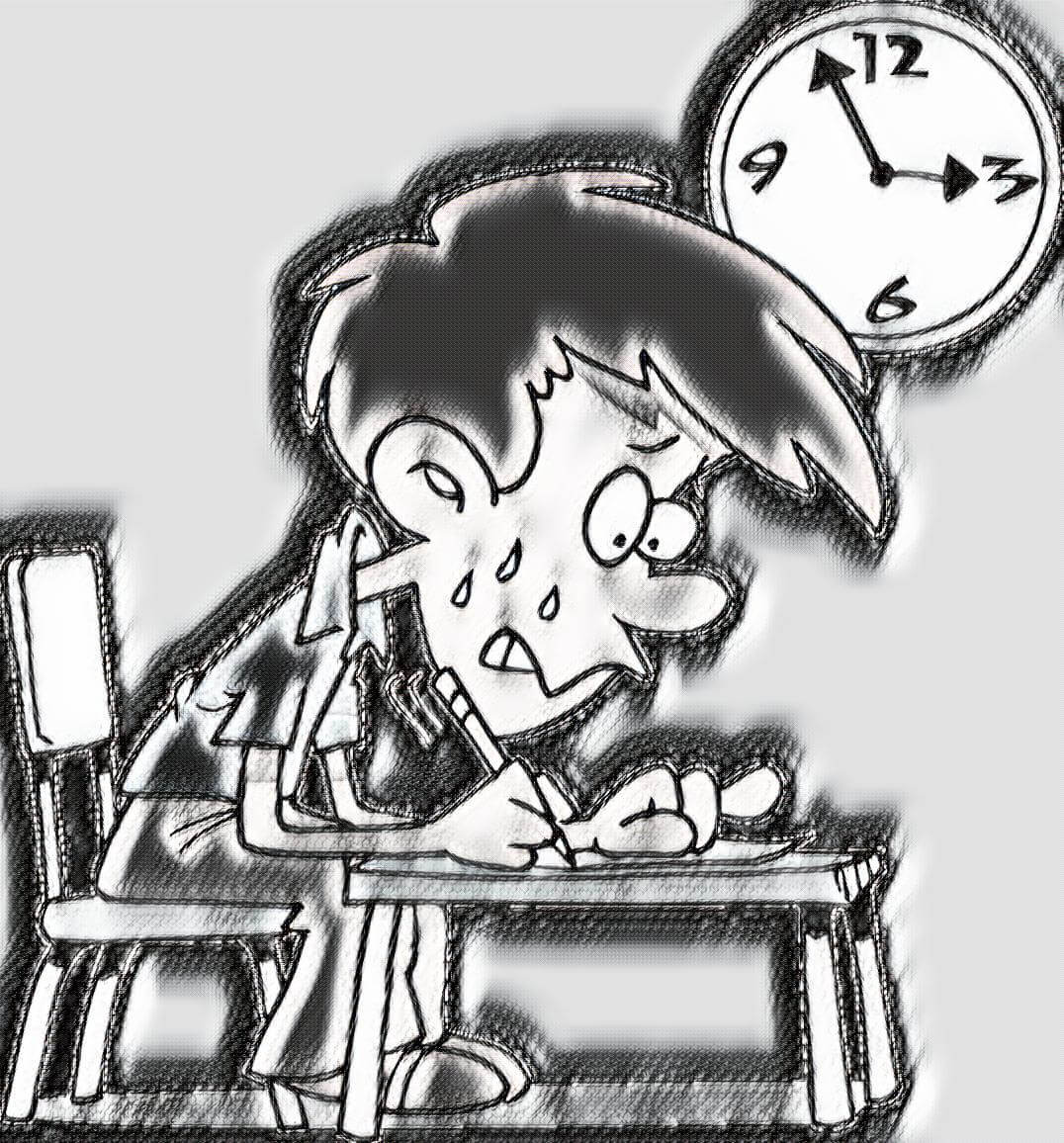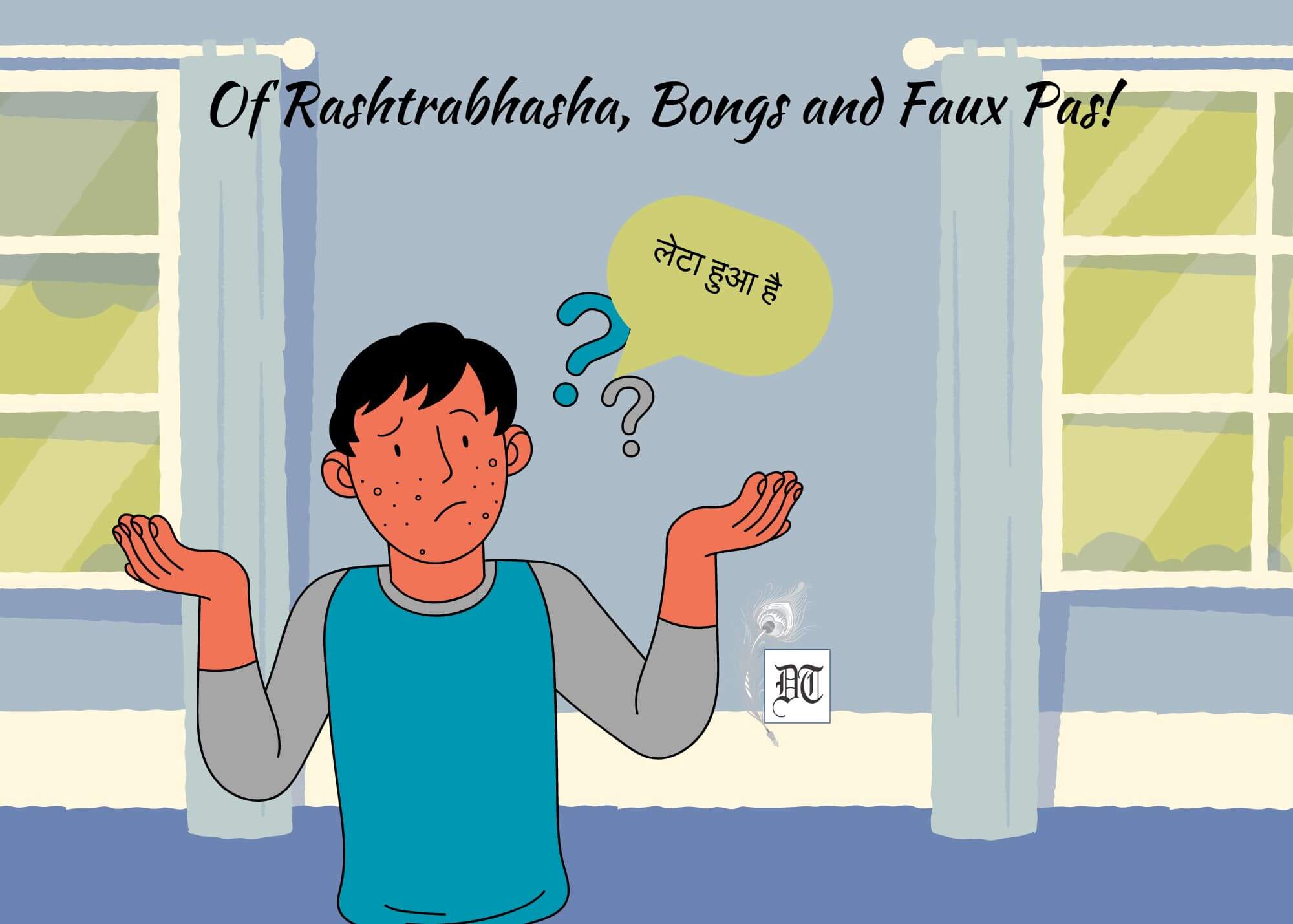Soumya tells us, tongue-in-cheek, the ordeals of cracking the IAS mains and what his friend, Ron, did. An exclusive for Different Truths.

There is a rite of passage to Manhood ritual that is practised by all graduates in India, called cracking the UPSC, the acronym for the body conducting the civil services exams.
This is an annual event, held since the colonial times, in the ancient tradition practised in China for millennia, of testing the youth in various academic disciplines, to choose the body of men (women too, but will continue to use the male gender for convenience, feminists please excuse), who will administer our great nation.
Every young man has to participate in this gruelling mega event at least once, more often thrice, nowadays as many as six times, till they are young no more. The prize is an entry to the hallowed circle of Avatars, or Gods, of the Indian Avatar Service, otherwise known as the IAS.
Every young man has to participate in this gruelling mega event at least once, more often thrice, nowadays as many as six times, till they are young no more. The prize is an entry to the hallowed circle of Avatars, or Gods, of the Indian Avatar Service, otherwise known as the IAS. The consolation prize is the Allied Services, or the Demigods.
Every year, a large section of the flower of India’s youth, from all corners, but largely from a particular area, collect in the national capital and join various institutes that train these hopefuls for the ordeal. They learn diverse disciplines from philosophy to mathematics, essay writing to multiple-choice questions (MCQs), and hone their vocabulary and reasoning skills, all of which would help them be chosen to govern the teeming multitudes of India.
Knowing my limitations, I had planned to opt-out of this marathon, as had my equally laidback friends. However, the fever is catching, and peer and family pressure are too hard to resist, we went in for the first round.

Knowing my limitations, I had planned to opt-out of this marathon, as had my equally laidback friends. However, the fever is catching, and peer and family pressure are too hard to resist, we went in for the first round. And, in a bookie confounding result, akin to Zimbabwe reaching the world cup finals, both me and my uber bohemian friend Ron, of whose adventures I have written before, got through the prelims.
The final hurdle of the race, the mains, was a different ball game altogether, and I had no intention of going the full round. Getting a cushy government job in the meanwhile gave me an excuse to bunk this ordeal, as I had to relocate to a different city. Ron was not so lucky. He was in his hometown, Shillong, trying his luck at various hare-brained entrepreneurial ventures, which no one considered a serious vocation, and parental diktat forced him to go the full round. His subject for the mains was Philosophy, not because he knew, studied, liked, or even had an inkling as to what it dealt with, but as careful research showed that it had the shortest syllabus.
The D-day dawned, and unfortunately clashed with a vital match telecast. Ron’s attempts to avoid going for the test was detected, and he was promptly despatched to the venue.
Arriving fifteen minutes late, he found that he was the only candidate from Shillong taking Philosophy, and the three invigilators conducting the test were waiting irritably, as, if he didn’t turn up for half an hour, they could close shop and return to the game on television.
Arriving fifteen minutes late, he found that he was the only candidate from Shillong taking Philosophy, and the three invigilators conducting the test were waiting irritably, as, if he didn’t turn up for half an hour, they could close shop and return to the game on television.
The question paper was opened with due ceremony, and Ron, supplied with adequate stationery, spent time going over it. Then he wrote some stuff, and half an hour later, submitted his paper. The half-hour at the table was necessary, as you could not leave the hall before 45 minutes in the three-hour paper. He explained to the puzzled authorities that the paper was extremely easy, and he had cracked it.
The veteran examiner knew better. He closely examined Ron. “Look son, are you sure you want to return in the afternoon for the second paper?” Ron said that he would. The senior academic gently repeated, “Look, we know how it is. We three can go home and watch the match over drinks if we call it a day. You are welcome to join us. No one need ever know. Your attendance will be marked as present. Else we will have to wait till forty-five minutes into the second paper and the match will be over.”
The veteran examiner knew better. He closely examined Ron. “Look son, are you sure you want to return in the afternoon for the second paper?” Ron said that he would. The senior academic gently repeated, “Look, we know how it is. We three can go home and watch the match over drinks if we call it a day. You are welcome to join us. No one need ever know. Your attendance will be marked as present. Else we will have to wait till forty-five minutes into the second paper and the match will be over.”
It was a clinching argument. The bureaucracy lost an original thinker. Ron went on to see the world. His parents said “Well, he tried his best. It’s the system!”
But that day, a good time was had by all, showing that they truly understood philosophy and the joy of cheering your team over beer beats sitting in a stuffy room ruminating on Rumi and Kant in the hopes of becoming a bureaucrat.
Photo from the Internet





 By
By

